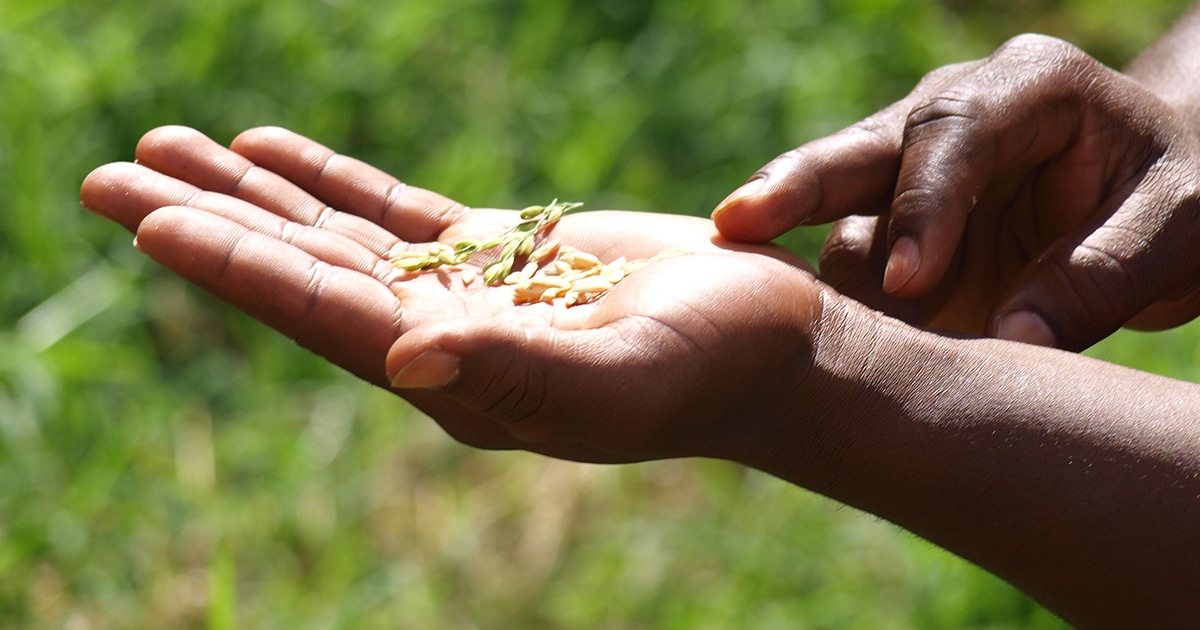For one small congregation in the Anglican Diocese of Saskatchewan, the spirit of the Lenten season found palpable expression at a March 12 Sunday service in response to the threat of drought and famine in East Africa.
The week prior to the service, United Nations Emergency Relief Coordinator Stephen O’Brien declared to the Security Council that 20 million people were in danger of starving to death in what he called “the largest humanitarian crisis since the creation of the UN,” a crisis exacerbated by war and drought.
Speaking to the ecumenical congregation at Turtle River Parish in the village of Mervin, where the local church has hosted a shared Anglican-United ministry for 47 years, Bishop Michael Hawkins—who regularly preaches at the church—read aloud his letter to congregations across the diocese asking for a special offering to be taken up on March 26 for emergency response in East Africa and elsewhere.
By the following Wednesday, the Mervin congregation had sent a $3,500 cheque to the Diocese of Saskatchewan payable to the Primate’s World Relief and Development Fund (PWRDF), and another cheque for $1,500 to Mission and Service, the umbrella development and relief organization for the United Church of Canada.
“That was just one congregation—I think the attendance that Sunday was 22 people,” Bishop Hawkins said. “So it was miraculous and remarkable.
“You worry that people’s financial resources are exhausted, and that their sympathy and compassion has been exhausted in these times, and that’s certainly not the case in that congregation. I was moved to tears.”
Highlighting the presence of both Anglican and United church members, which he said underscored the value parishioners placed on “the unity of the human family and the Christian family”, the bishop drew a connection between Lent and the gift of the Mervin congregation.
“Obviously something connected with them,” he said. “It’s a generous and happy congregation in Mervin. But one of the traditional things in Lent is extending yourself in some way and caring for the poor and the needy and the neglected, whether that’s people actually doing works or the old tradition of coin boxes and the like.
“It has been always a time for works and acts of mercy … I suspect, as this crisis grows to be as big as some are fearing, that there’ll be a lot more tension and there may be more work.”
The Diocese of Saskatchewan continues to collect donations from across the diocese payable to PWRDF, which has been at the front lines of the Canadian Anglican response to the hunger crisis in East Africa.
Working with its partner organizations, the agency has donated $50,000 to the ACT Alliance appeal for South Sudan and Kenya, $20,000 to the Adventist Development and Relief Agency for famine relief in South Sudan, and $30,000 to the ACT Alliance appeal to address the drought emergency in Somalia.
A concerted PWRDF campaign to provide famine relief, running until May 31, is currently underway. The agency continues to accept donations for South Sudan and Kenya.
Make a donation to support famine relief in East Africa.
Interested in keeping up-to-date on news, opinion, events and resources from the Anglican Church of Canada? Sign up for our email alerts .

